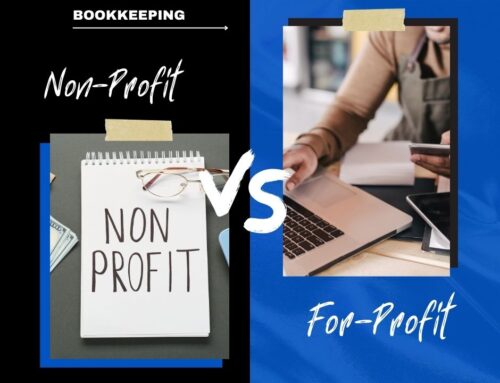“Do I need an audit?”
In my profession, this is one of the most common questions that I hear on a regular basis. I’ve realized that many small business owners don’t know much about auditing.
People hear the word audit and automatically think about the IRS knocking on their door seeking back taxes. But that’s not always the case. In fact, a tax audit is just one of the many types of audits that can be conducted for your business.
Before we go any further, let’s start with the basics. What is an audit?
An audit is an official examination of an organization’s accounts or financial records, typically handled by an independent party.
Audits are not always a bad thing. They are a normal part of operating a business, and there are plenty of instances where you’ll be required to have one.
When Do You Need an Audit?
You can initiate an audit any time you’d like. This is called an internal audit. It’s a good business practice to identify and correct any mistakes in your books. It also keeps your bookkeepers accountable for their work. I’d recommend staying proactive and conducting internal audits on a regular basis.
Here’s a deeper look at the different types of audits and the instances when you’ll need to be audited. The circumstances will vary based on the type of business you have.
Non-profit audits
The requirements for non-profit audits vary from state to state. For example, here in Massachusetts audits are required for any non-profit organization with gross annual revenue exceeding $500,000.
Non-profit organizations with gross revenue higher than $200,000 but less than $500,000 must undergo at least an accounting review. Official audits are not required in this scenario.
You can review this resource from the National Council of Nonprofits to see the requirements in your local state.
All non-profits are subject to federal audits, regardless of the state they’re operating in. If your non-profit receives money from the federal government, federal law requires an audit if you expend more than $750,000 in federal dollars during a fiscal year.
For-profit audits
In addition to an IRS tax audit, there are many other circumstances why a for-profit organization would be required to have an audit.
It’s common for investors to request an audit. This can happen before or after they’ve invested in the company. Before the initial investment, an investor wants to make sure that your financial statements are legitimate and accurate. After they’ve invested, an investor wants to make sure that they’re getting the proper return that was agreed upon.
If you’re applying for a loan at a bank or credit union, the lender may require audited financial statements before releasing funds or opening a line of credit for your business.
Insurance companies might require audits as well. They use these audits to calculate your annual premiums. This is a common practice for liability insurance and workers compensation insurance as well as other business insurance policies.
Who Does an Audit?
The type of audit you have will impact who completes your audit. Here are the scenarios:
- Internal Audit — You or someone else in your company can conduct an internal audit. But a person can’t audit their own work; that defeats the purpose. So you can’t use your bookkeeper to audit your finances. If they are the only qualified candidate, you might want to look for outsourced bookkeeping services to perform your audit.
- External Audit — These types of audits are handled by a third party, such as your insurance company or an independent auditing firm.
- IRS Audit — IRS audits are randomly selected or initiated due to a mistake on a tax return. If you’re being audited by the IRS, you’ll receive a written notice. These audits are conducted with in-person interviews or through the mail.
Preparing For an Audit
In theory, you should always be ready for an audit. That way you’re not scrambling to get your financials in order at the last minute. If you’re not organized, it can make the audit more difficult than it needs to be.
The primary function of an audit is to check the financial records for accuracy. For an auditor to do this properly, you’ll need to have documents and records ready.
- Receipts
- Bank statements
- Invoices
- Financial records
- Credit card statements
- Journal entries
These are some of the materials you should start gathering. All your documents should be prepared in chronological order. Depending on the type of audit, you should have all records available from the last three years.
Auditing firms may provide profit non-profit organizations with “prep packets” detailing what they plan on reviewing.
Steps of an Audit
As we’ve already discussed, audits are conducted for different reasons. So not all audits will take the same path. But with that said, a typical audit will look something like this:
- The organization is notified of an audit requirement.
- Financial documents are requested by the auditor.
- There will be a pre-audit meeting to determine the scope and timeline of the process.
- The auditor reviews the documents and potentially conducts on-site fieldwork.
- A report is drafted that details the findings of the audit, including any errors or concerns.
- The organization may need to take specific actions based on the findings. (Example: paying past due taxes after an IRS audit)
Again, some audits will be a bit more complex. It all depends on who initiates the audit and what the purpose of the audit is. But overall, this is a good indication of what you can expect.
After an Audit is Complete
What happens after an audit is done?
After the audit is over, you can go back to business as usual. You may need to correct some of your financial documents, as detailed in the audit report.
Just because your audit is over, you still need to keep a close eye on your financials moving forward. Make sure that all your documents are organized, so you can be prepared for your next audit.
For those of you who are having trouble keeping your financial records organized, it might be time for you to consider outsourced CFO services. Contact us, and we’ll set up a consultation to discuss your accounting needs. We’ll help you keep everything organized so you can be prepared for audits in the future.





